Qualitative Research Design: An Interactive Approach provides researchers and students with a user-friendly, step-by-step guide to planning qualitative research. It shows how the components of design interact with each other, and provides a strategy for creating coherent and workable relationships among these design components, highlighting key design issues. Written in an informal, jargon-free style, the new Third Edition incorporates examples and hands-on exercises.
Qualitative Research Design
KSh 7,700.00
Qualitative Research Design: An Interactive Approach provides researchers and students with a user-friendly, step-by-step guide to planning qualitative research. It shows how the components of design interact with each other, and provides a strategy for creating coherent and workable relationships among these design components, highlighting key design issues. Written in an informal, jargon-free style, the new Third Edition incorporates examples and hands-on exercises.
Related products
-
District Laboratory Practice in Tropical Countries
KSh 21,240.00This new edition includes an update on HIV disease/AIDS, recently developed HIV rapid tests to diagnose HIV infection and screen donor blood, and current information on antiretroviral drugs and the laboratory monitoring of antiretroviral therapy. Information on the epidemiology and laboratory investigation of other pathogens has also been brought up to date. Several new, rapid, simple to perform immunochromatographic tests to assist in the diagnosis of infectious diseases are described, including those for brucellosis, cholera, dengue, leptospirosis, syphilis and hepatitis. Recently developed lgM antibody tests to investigate typhoid fever are also described. The new classification of salmonellae has been introduced. Details of manufacturers and suppliers now include website information and e-mail addresses. The haematology and blood transfusion chapters have been updated, including a review of haemoglobin measurement methods in consideration of the high prevalence of anaemia in developing countries.
-
Security Studies
KSh 5,740.00Security Studies: An Introduction, 3rd edition, is the most comprehensive textbook available on the subject, providing students with an essential grounding in the debates, frameworks, and issues on the contemporary security agenda.
This new edition has been comprehensively revised and updated, with new chapters added on poststructuralism, postcolonialism, securitization, peace and violence, development, women, peace and security, cybersecurity, and outer space.
Divided into four parts, the text provides students with a detailed, accessible overview of the major theoretical approaches, key themes, and most significant issues within security studies.
- Part 1 explores the main theoretical approaches from both traditional and critical standpoints
- Part 2 explains the central concepts underpinning contemporary debates
- Part 3 presents an overview of the institutional security architecture
- Part 4 examines some of the key contemporary challenges to global security
Collecting these related strands into a single textbook creates a valuable teaching tool and a comprehensive, accessible learning resource for undergraduates and MA students.
-
The Man Who Quit Money Paperback
KSh 1,000.00In 2000, Daniel Suelo left his life savings-all thirty dollars of it-in a phone booth. He has lived without money-and with a newfound sense of freedom and security-ever since. The Man Who Quit Money is an account of how one man learned to live, sanely and happily, without earning, receiving, or spending a single cent. Suelo doesn’t pay taxes, or accept food stamps or welfare. He lives in caves in the Utah canyonlands, forages wild foods and gourmet discards. He no longer even carries an I.D. Yet he manages to amply fulfill not only the basic human needs-for shelter, food, and warmth-but, to an enviable degree, the universal desires for companionship, purpose, and spiritual engagement. In retracing the surprising path and guiding philosophy that led Suelo into this way of life, Sundeen raises provocative and riveting questions about the decisions we all make, by default or by design, about how we live-and how we might live better.
-
Oxford Textbook of Clinical Pharmacology and Drug Therapy
KSh 2,955.00Drug therapy is a fundamental part of general internal medicine, and is as demanding a process as diagnosis. The four sections of this practical guide cover the principles of clinical pharmacology, including drug development, use, and adverse reactions; the practical management of diseases with drugs; drug prescription; and over 300 commonly used drugs in a separate pharmacopoeia, identifying their generic names, usage, modes of action, properties, and effects. -
Participation in Project Preparation: Lessons from World Bank-Assisted Projects in India (World Bank Discussion Papers)
KSh 1,000.00This study analyzes the extent to which the India program is meeting the World Bank’s objective of mainstreaming participatory approaches in project preparation and design. It includes ten projects in which participation was an overall project objective. These projects provided “good practice” lessons from a variety of social and natural resource management sectors. -
Constitution of Kenya
KSh 490.00Other books in the series:
- Civil Procedure Statutes
- Commercial Law Statutes
- Criminal Law Statues
- Family Law Statutes
- Labour Law Statutes
- Legal Profession
- Penal Code
- Property Law Statutes
-
I Have Seen the Promised Land: A Utopian Novella
KSh 395.00This book, a utopian novella set in the year 2026, is part of a trilogy along with The History of the Culture of War and World Peace through the Town Hall: A Strategy for the Global Movement for a Culture of Peace. Together they put forward a comprehensive and feasible plan to achieve world peace. They are based on the author’s responsibility for the United Nations International Year for the Culture of Peace (2000), the Manifesto 2000 signed by 75 million people, and the United Nations Declaration and Programme of Action on a Culture of Peace. This novella foresees the coming collapse of the global economy and nation states as an opportunity to refound the United Nations on the basis of those who understand the need for a culture of peace: individuals, civil society organizations and local governments. It provides an imaginative and personalized account of how the world has come to a culture of peace and explores the various contradictions involved.

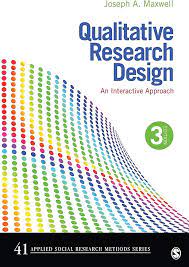
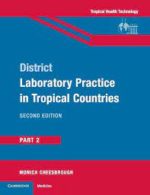

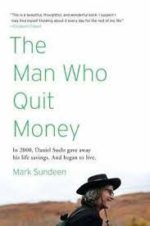

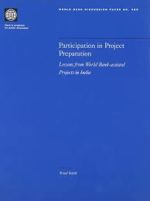

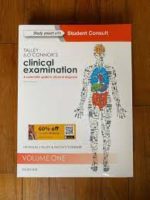

Be the first to review “Qualitative Research Design”